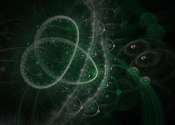Solving 'barren plateaus' is the key to quantum machine learning
Many machine learning algorithms on quantum computers suffer from the dreaded "barren plateau" of unsolvability, where they run into dead ends on optimization problems. This challenge had been relatively unstudied—until ...









